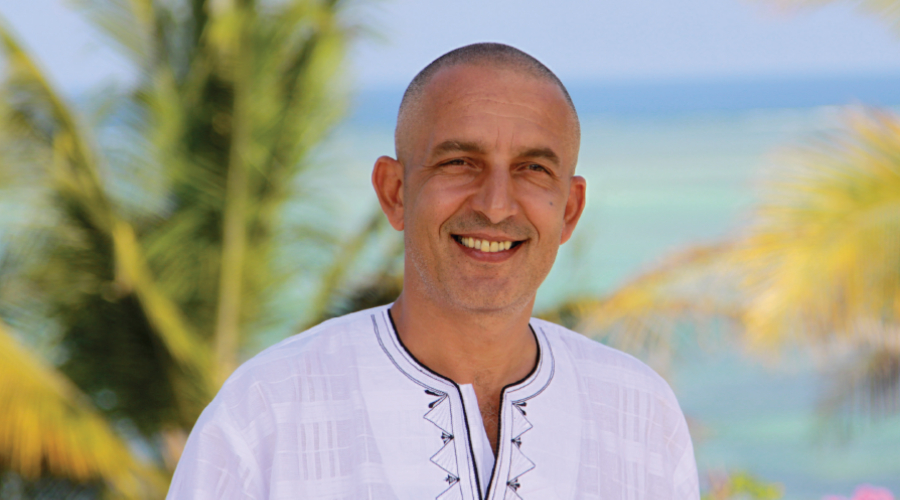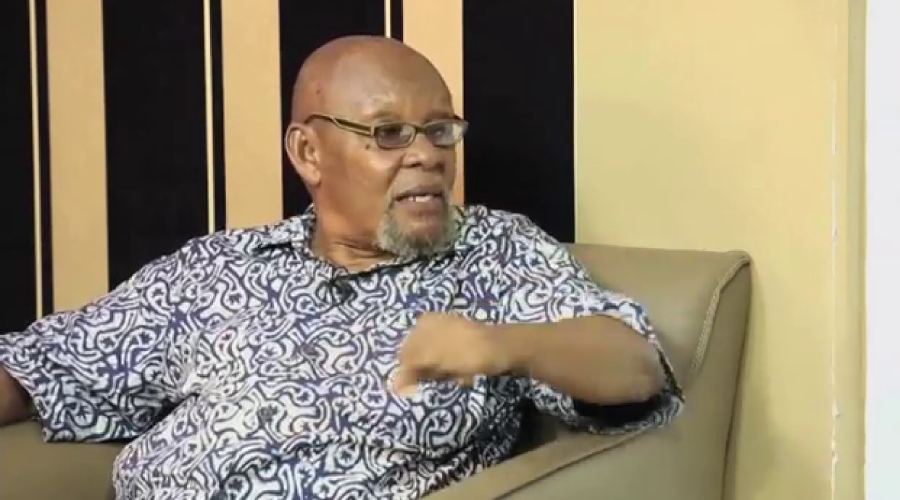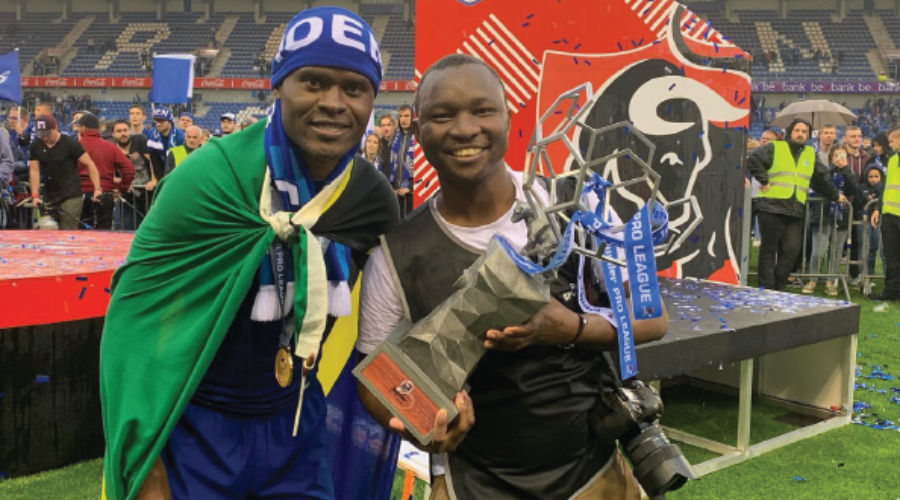Busara Promotions is an NGO registered in Zanzibar with a mission to “increase visibility and accessibility for African music, develop skills and opportunities in the music sector, to strengthen networking and partnerships, thereby contributing to East Africa’s social, cultural, and economic development.”
Its main event is the Sauti za Busara music festival, happening every year in February since 2004 in Stone Town, Zanzibar.
The event brings people together to celebrate the richness and diversity of African music. 5,000 people attend daily, or 20,000 over four days. Around 70% of audiences are from East Africa, with visitors from across Africa, Europe, North America, the Middle East, Australia and Japan.
Sauti za Busara aka ‘the friendliest festival on the planet’.
Keeping Sauti za Busara accessible for local people is a priority, so admission for Tanzanians is free until 5pm. After then, daily tickets cost US$1.50 for Tanzanian citizensor $25 for international visitors.
Above all, the festival promotes respect for cultural diversity. Forty groups are carefully selected by a committee to participate at the festival. Typically, around 50% will be from Zanzibar and Tanzania, with others representing different areas of the African Continent and diaspora.
Young, local and emerging talents are showcased alongside established acts.
The festival showcases quality music, acoustic and electric, that is played live (no ‘playback’). Priority is given to music with cultural identity.
Sauti za Busara provides a platform for the home audience to experience music from other parts of Africa, whilst showcasing the diversity of East African music to international visitors.
In any society this kind of interchange is vital to the health and development of musical styles.
To date Sauti za Busara featured artists including Bassekou Kouyate (Mali), Natacha Atlas (Egypt/UK), ThandiswaMazwai (SA), Nneka (Nigeria), Blitz the Ambassador (Ghana/USA), Malouma (Mauritania), NadiIkhwanSafaa (Znz), Tcheka (Cape Verde), BaCissoko (Guinea), Samba Mapangala (DRC), Orchestre Poly Rythmo (Benin), DDC Mlimani Park Orchestra (Tz), Didier Awadi (Senegal), Tumi& The Volume (SA) and many more.
Many Tanzanian artists seen by international promoters at Sauti za Busara were subsequently invited to tour in Africa, Europe or USA, eg. Bi Kidude, Msafiri Zawose, Tausi Women’s Taarab, Leo Mkanyia& the Swahili Blues Band, Culture Musical Club, Rajab Suleiman & KitharaandJagwa Music.
Sauti za Busara brings a massive boost for the local economy. Mid-February used to be low season in Zanzibar and because of the festival is now one of the busiest times of year, with flights, ferries, hotels and restaurants around Zanzibar Town fully booked around festival time. Zanzibar Government statistics show the number of visitors to Zanzibar in February rose from 3,500 in 2004 to more than 40,000 in 2015.
Even conservative estimates show since 2004 Sauti za Busara has generated USD 70m in revenues for the island. Around festival time, it’s not easy to find flights or ferry tickets. Hotels around Stone Town are all full; taxi drivers are busy, restaurants have queues of customers and traders are all smiling.
150 crew members are directly employed by the festival each year. Of these, more than 90% are local Tanzanians, from a variety of backgrounds. Throughout the year, around East Africa, these and other people of all ages are increasingly finding ways to earn creativelivelihoods in music and the arts.
Training workshops and seminars for skills-development are key elements of the festival, for musicians, managers, media professionals and technicians from the region.
During 2015 for example, the festival hosted training in stage management, sound engineering, stage lighting, press and marketing skills. In partnership with other festivals in Tanzania, Kenya, Uganda, Congo Brazza, Mozambique, Zimbabwe, Denmark and Norway, members of festival production teams greatly benefit from hands-on learning experiences by joining other crews, where skills, knowledge and contacts are shared across borders.
Through the year, and especially during the week before Sauti za Busara, Busara works in partnership with Zanzibar’s Dhow Countries Music Academy to provide opportunities for international musicians to meet, learn from each other, and create new musical collaborations. The fruits of these workshops are performed on the main festival stage, under the title of Swahili Encounters.
Another space where the festival connects people is ‘Movers & Shakers’: a forum for local and visiting arts professionals to share information, exchange ideas, and network. Movers & Shakers takes place daily during the festival, providing an ideal environment for artists, managers, media, donors and sponsors and other professionals to meet and connect informally.
At the same time the festival promotesBusara Xtra; externally-organised events of cultural interest.
These fringe activities present further opportunities for local artists to showcase their work, encourage visitors to see other parts of the islands, and share economic benefits with the wider population.
BBC World Service hailed Sauti za Busara as one of “Africa’s best and most respected music events”. It is also included in CNN’s “7 African music festivals you really have to see” and tops AfroTourism’s “Best Music Festivals”.
A critical factor for Sauti za Busara’s success is it’s a shared experience between local people and visitors.
Locals are more confident in their traditions and culture and the fact these must be special, because visitors now come from all over the world to the festival.
International visitors know they are experiencing something authentic and unique, as they enjoy African music under African skies, shoulder to shoulder with the local population.
Unfortunately, due to lack of funding commitments, for the first time in 13 years Sauti za Busara was cancelled for the 2016 edition.
Yusuf Mahmoud, CEO of Busara Promotions, said “This decision was not taken lightly. Selling tickets for Sauti za Busara was never a problem, but these only cover 30% of festival costs.
Festivals invigorate young people’s interest in local culture, give opportunities for artists and music professionals to meet and learn from each other, keep traditions alive, create employment for local people and promote models for responsible tourism that honour and respect local culture.
However, since 2004, we had zero financial support from the government in Zanzibar, the United Republic of Tanzania or the East African Community. Despite tireless efforts, support from donors, embassies and commercial sponsors has reached an all-time low.
Busara Promotions is an NGO; the festival is non-profit. To be more sustainable, before the 2017 edition our priority will be to develop long-term partnerships with donors and sponsors who share our vision. If anyone reading this is interested to help keep Sauti za Busara alive, generating employment locally, whilst shining the spotlight on our rich musical traditions and promoting cultural tourism for Zanzibar and Tanzania, please contact me at Busara Promotions.”
Meanwhile, Busara Promotions continues its regular activities to promote African music, strengthen local know-how and build livelihoods in the music sector. As the Senegalese musician BaabaMaal says, “Music is one of the most important means of communicating our history, our concerns and our values. Our traditions are carried in music more than in books. ”At the same time, music is a universal language, through which the world can see Africa is positive; Africa is vibrant, Africa is rich in
its many cultures and expressions.
With these thoughts in mind, Sauti za Busara festival provides an example of an event designed to develop, in both locals and visitors, an appreciation of the uniqueness, wealth and diversity of African music. It shows there is beauty in our traditional music, with employment and income to be gained in sustaining it.



